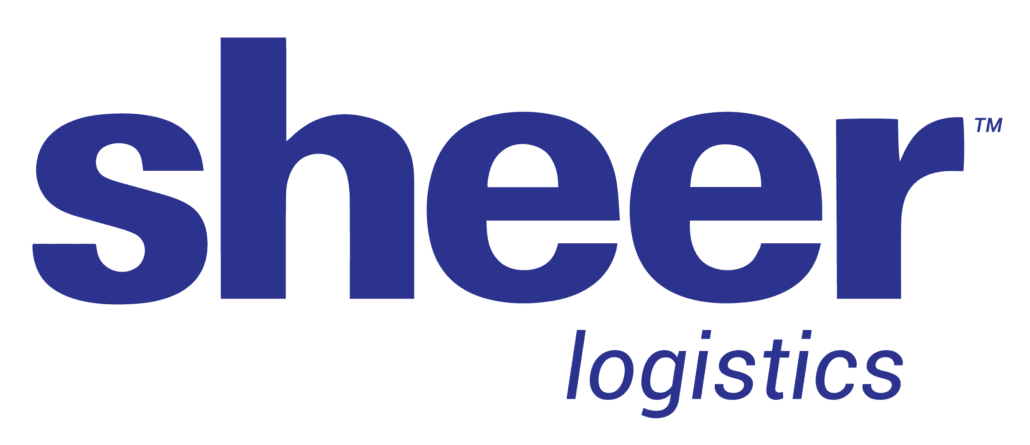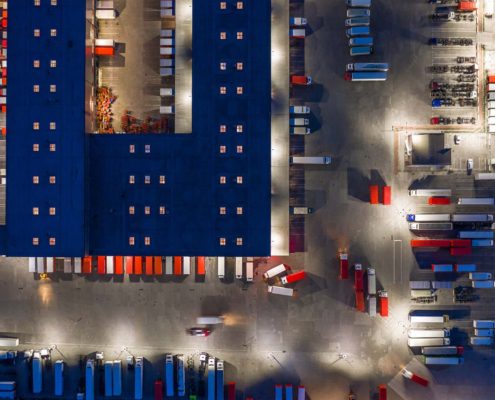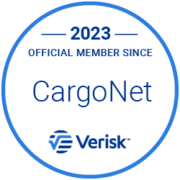
3PLs (Third-Party Logistics providers) and freight forwarders are both integral parts of the logistics and supply chain industry, but the functions they serve and the services they provide are often misunderstood. Throughout my 30+ plus years of experience in the logistics and supply chain industry, I have had the opportunity to work with and for a number of 3PLs and freight forwarders. This blog post explores the differences between 3PLs and freight forwarders, examines the services each provides, and shares guidelines for selecting the right solution provider for your supply chain management needs.
3PLs offer a broad range of logistics services, which can include transportation, warehousing, distribution, and sometimes even value-added services like packaging, labeling, and inventory management. 3PL providers typically integrate various logistics functions and often customize solutions to meet the specific needs of their clients. They act as intermediaries between shippers and carriers, managing the logistics process on behalf of their clients. 3PLs may handle both domestic and international logistics operations, depending on their capabilities and client requirements.
Freight forwarders specialize in managing the transportation and shipment of goods, often across international borders. Freight forwarders also handle tasks such as arranging for the transportation of goods via various modes of transportation (air, sea, road, or rail), preparing shipping documentation, negotiating freight rates, and managing customs clearance procedures. They act as middleman between shippers and carriers, coordinating the logistics of international trade on behalf of their clients. Freight forwarders may or may not offer additional services like warehousing or distribution. As the e-commerce sector and the demand for order management and order fulfillment services continues to grow, the freight forwarding market has grown, and is anticipated to grow at a CAGR of 4% between 2023 and 2032.
Whereas both 3PLs and freight forwarders play crucial roles in the logistics industry, 3PLs offer a wider range of logistics services and often handle both domestic and international operations, whereas freight forwarders typically specialize in managing the transportation of goods across international borders.
What Is a Third-Party Logistics (3PL) Provider?
Third-party logistics refers to any entity that provides logistics and/or transportation services that are distinct from the shipper or the carrier. As you’ll see below, 3PLs offer many services. To learn more about 3PL services and how they work, please check out my post “What is a 3PL?”
Core Services Provided by 3PLs
3PLs offer a wide variety of logistics and transportation services, including:
- Transportation Brokerage and Management: One of the core functions of transportation-based 3PLs is acting as a “matchmaker” between shippers and carriers. Transportation-focused 3PLs maintain relationships with a vast network of trucking companies. The types of transportation modes they offer can vary, but typically include Truckload, LTL, flatbed, intermodal, expedite, as well as other specialized services. These 3PLs act as a broker, identifying the right carrier at the right price and appropriate service level to move their shipper customer’s freight.
- Value Logistics Services: Some 3PLs offer value-added services that transcend the basic “point A to point B” nature of transportation brokerage. Rather than focusing on finding a single truck to move an individual load, these services are designed to address more complex or ongoing transportation challenges. For example, some 3PLs offer drop trailer programs that help shippers unlock greater efficiencies in their transportation operations. In this model, the 3PL works with the carrier to create a trailer pool that is essentially dedicated to the drop trailer program. Shippers can then pre-load the trailers, making the pickup process by the carrier fast and easy. Carriers then drop off empty trailers at the shipper’s location, where the process begins again. In addition to drop trailer programs, some 3PLs offer services such as multi-stop truckload, consolidation, and more.
- Technology: Many 3PLs provide shippers access to logistics and transportation technology, such as Transportation Management Systems (TMS) and integration platforms, that drive efficiency, visibility, and reduce costs.
- Warehouse and Distribution Services: Many 3PLs offer warehousing and distribution services, and some specialize in these solutions. These 3PLs manage the storage, handling, and distribution of goods on behalf of shippers either through their own warehouses or through partnerships with warehouses and distribution centers.
- Customs Brokerage and International Freight Forwarding: Some 3PL service providers blur the distinction between 3PLs and freight forwarders by providing freight forwarding services via ocean, air, and ground transportation as well as customs clearance and compliance services.
What Is a Freight Forwarder?
Now that we’ve defined a 3PL, let’s take a closer look at freight forwarders and the services they provide. Freight forwarders specialize in managing the transportation of goods, often across international borders. Freight forwarders arrange for the transportation of goods via air, sea, road, or rail, including the preparation of shipping documentation, negotiating freight rates, and managing customs clearance. Their area of focus tends to be narrower in that they focus on transportation and may not offer additional services such as long-term warehousing, distribution, or value-added logistics services such as drop trailer, multi-stop truckload or consolidation.
Core Services Provided by Freight Forwarders
- Transportation: Freight forwarders arrange for the transportation of goods via air, sea, road, and rail, selecting the most efficient and cost-effective options based on the characteristics of the cargo and the shipper’s delivery requirements.
- Warehousing: Freight forwarders provide temporary storage for goods prior to shipment or after their arrival at their destination.
- Booking Cargo Space: Freight forwarders book space with airlines, shipping lines and other transportation providers on behalf of their clients. These bookings are often predicated on volume-based discounts arranged with the transportation provider.
- Consolidation: For shippers with smaller shipments, freight forwarders provide consolidation services, called Less Than Container Load (LCL) shipping, which consolidate smaller shipments into full containers.
- Documentation: Freight forwarders manage all shipping and customs documentation including bills of lading (BOL), export declarations, and other documentation needed to meet local and international regulations.
- Customs Clearance: Freight forwarders help shippers navigate the often-complex customs procedures, regulations, and requirements related to international shipping.
- Insurance: Freight forwarders provide or arrange insurance services to protect the value of the cargo against loss or damage during transit.
- Tracking: Freight forwarders use Real-Time Transportation Visibility Platforms (RTTVP) and other modern visibility tools to provide real-time tracking for shipments.
- Consulting: Freight forwarders sometimes act as consultants, advising shippers on the most efficient and cost-effective methods of shipping, assessing risk, and planning logistics accordingly.
- Specialized Shipping Services: Freight forwarders often handle freight that is hazardous, including chemical and other dangerous materials, perishable, or oversized and requires specialized handling.
Differences Between 3PLs and Freight Forwarders
There are important distinctions between 3PLs and Freight Forwarders that shippers should understand before engaging their services.
| Service | Freight Forwarders | 3PLs |
|---|---|---|
| Cargo Handling | Freight forwarders may physically handle cargo, manage shipment consolidation, provide warehousing, and issue bills of lading. They are directly involved in the logistics chain. | Freight brokers typically do not handle cargo; they facilitate the relationship and agreement between the shipper and the carrier. |
| Consolidation | Consolidation typically refers to consolidating shipments that are Less Than Container (LCL) into Full Container Loads (FCL). | Consolidation typically refers to consolidating shipments that are less than a truckload (LTL) into full truckload (TL) shipments. |
| Warehousing | Freight forwarders provide temporary storage for goods either before they are shipped or after they arrive at their destination. | 3PLs often help a shipper identify and secure long-term warehousing options for their goods, either through warehouses they manage or through external partners. |
| Overall Business Model | Freight forwarders often negotiate volume discounts with shipping lines based on their freight portfolio. Their revenue derives from the difference between the cost to the forwarder and what the forwarder charges the client. | 3PLs often act as freight brokers. Their revenue derives from fees based on facilitating the contract between shippers and carriers. |
When to Choose a 3PL or Freight Forwarder
Selecting a 3PL partner or Freight Forwarder for your shipping needs depends on a variety of factors, including the complexity of your logistics needs and transportation requirements, the desired level of service, and the scope or your supply chain.
If your needs go beyond transportation, a third-party logistics company, or even a 4PL/Managed Transportation Services provider, may be the best choice. If you decide to go with a 3PL, here is some additional information that may be helpful to you as you go through the process of selecting the right logistics partner.
A 4PL/Managed Transportation Services provider can provide end-to-end supply chain management, removing the hassle of in-house logistics management through the implementation of logistics technology and the outsourcing of various logistics functions. To learn more, please check out my blog post about the services offered by 4PLs.
However, if you primarily need assistance with international transportation, customs clearance, and export/import documentation, a freight forwarding company is a good choice. Freight forwarders specialize in managing the transportation of goods from A to B, often across international borders, and in guiding clients through complex customs procedures and regulations.
If you need additional assistance in figuring out which provider is best for your needs, please do not hesitate to contact us at Sheer Logistics.
Whether you need full logistics management, carrier sourcing, or help with any part of the logistics process, Sheer Logistics delivers industry experts and cutting-edge technology that deliver bottom-line results.








